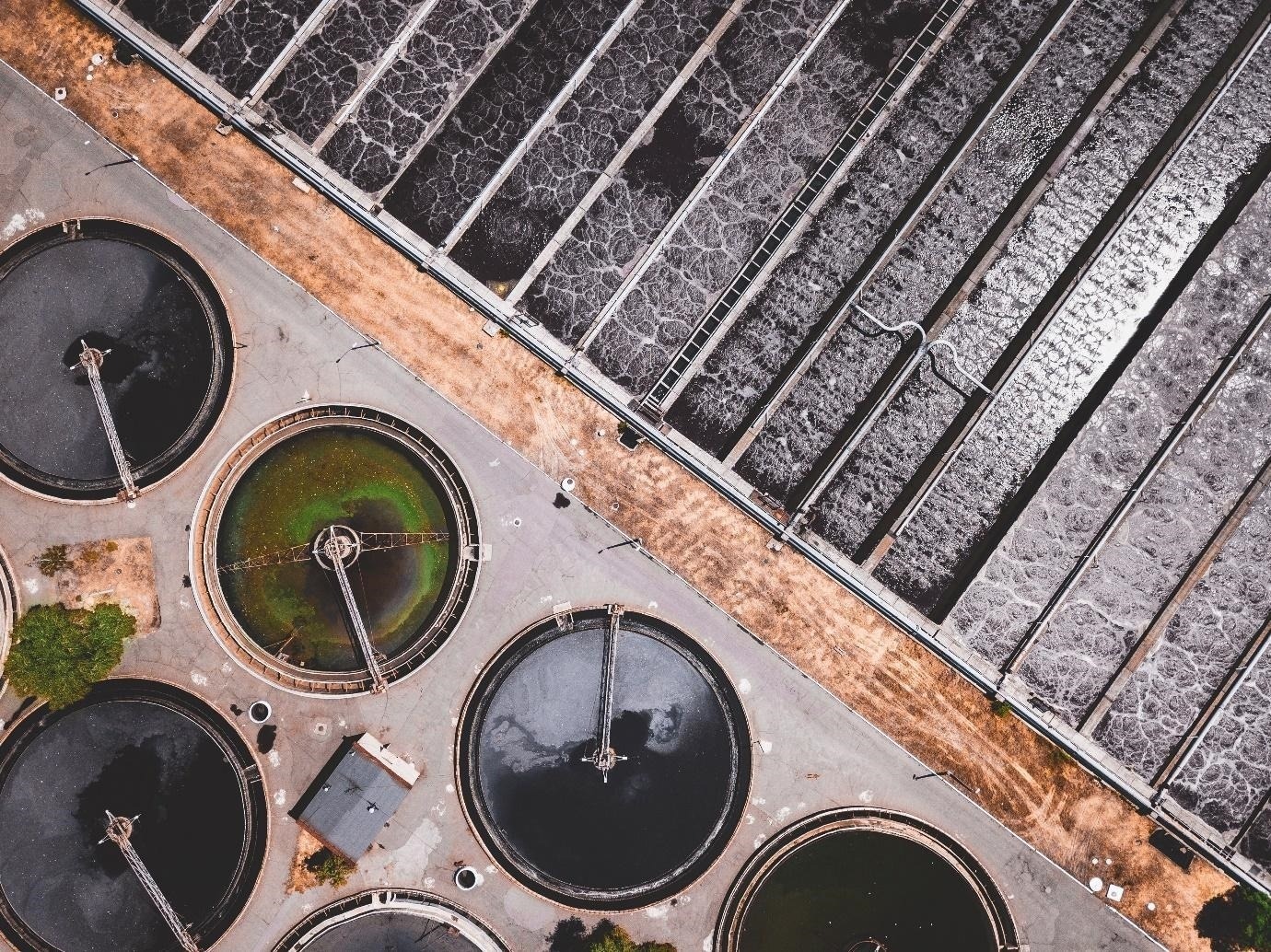Researchers from the University of Portsmouth have examined the dynamic changes in the resilience of UK wastewater treatment works, now known as Water Resource Recovery Facilities (WRRFs), and discovered that environmental stressors are increasing the potential for pollution events.
 Wastewater treatment plant stock image. Image Credit: University of Portsmouth
Wastewater treatment plant stock image. Image Credit: University of Portsmouth
WRRFs play a vital role in our day-to-day lives by producing clean water, removing nutrients, generating renewable energy, and extracting other valuable bio-based materials from wastewaters. These systems have been engineered to withstand process upsets or disturbances to an extent, but a new study suggests climate change and population growth is putting them under extreme stress.
The collaborative project with Southern Water and Thames Water was the first to use instrument data from operational and compliance monitoring to track real-life stressors and their influence on WRRFs. It found dynamic stressors, including higher rainfall intensity and extended dry periods, could be linked to each event. This also echoes the future challenges noted in the latest IPCC report, which states with high confidence that extreme weather linked to climate change will cause damage to infrastructure.
To avoid damaging pollution incidents, the team behind the study says it is crucial to understand how stressors manifest, leading to dramatic changes in wastewater volume and concentration. This will give water companies an extended reaction time to events and the possibility of reducing the impact on a WRRF.
Lead author of the paper, Timothy Holloway from the University of Portsmouth’s School of Civil Engineering and Surveying, said: “Improving asset and infrastructure resilience is a significant challenge for the water industry as operational disruptions caused by stressors become more common and difficult to predict. As we face significant political, social and environmental uncertainty, water companies and government agencies are forced to manage complex and dynamic changes in resilience to events outside of their control.
“If we continue on the same path, it is extremely likely that we will experience more severe pollution events due to new and rapidly emerging stressors on wastewater systems. This could result in inland flooding, flood and storm damage in coastal areas, and damages to infrastructure.”
The study, published in Water Research, proposes using actual WRRF data to help mitigate further disruption to wastewater operators in the UK and globally.
Dr Yang, Process Growth Lead Water Quality at Southern Water, said: “Southern Water has been leading the industry in effluent monitoring for the last two decades. The valuable long-term data from our monitoring programme enabled this pioneering research. Southern Water’s current sewer monitoring programme offers more exciting opportunities. We are at a time of digital transformation and climate change.
“This research puts forward a new tool to capitalise the advance of digital and sensing technologies. It aims to enable the operator to implement the best strategies in operating a sewer network or a treatment works based on live data so that the customers and environment are better protected from adverse impact of external environment such as climate change. I am proud and feel privileged to work with the team at Portsmouth University on behalf of Southern Water. I look forward to more collaborations in future.”
Dr Ben Martin, Lead Research Scientist at Thames Water, added: “At Thames Water, we have reached the point where digital tools can leverage our performance and monitoring datasets to produce unprecedented operational benefits.
“We are now better able to cope with disruptions, predict and take proactive measures before asset failures, and create autonomous systems that ultimately improve the quality of water supplied to our natural environment. Seeing the value of these and similar efforts across industry and academia recognised in this white paper is heartening. Working with Mr Tim Holloway of the University of Portsmouth has been incredibly valuable, as we look to build cross-sectoral synergies in the field.”